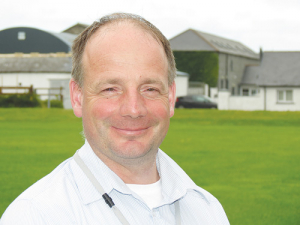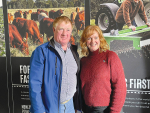Peer to peer is the best way to get farmers to change to new systems and technologies, says an Irish researcher.
Dr Michael Gottstien works for the government research organisation Teagasc and specialises in knowledge transfer. He says research by his organisation shows that a multi-prong approach to knowledge transfer is required.
He says Teagasc is turning to social media using Youtube, Twitter and Facebook to engage and communicate with farmers. There is no point in just publishing research findings in a newsletter and hoping farmers will pick it up.
Unlike New Zealand (as it once was, this writer insists), Ireland with Teagasc has an integrated organisation which delivers rural education, farm advisory services and research. Gottstein says this system has many distinct advantages.
“Our scientists are increasingly involved in knowledge transfer; they come along and participate in our knowledge transfer events. These teachers who are teaching best-practice to the new generation of farmers are getting them involved in discussion groups.
“And our advisors are in one-on-one contact with them. And we have monthly newsletters, seminars, open days and a better-farm programme where we bring these technologies out onto commercial farms including dairy.”
Gottstien says multiple technologies are commonly used nowadays to convey information. Farming media in Ireland similarly make video clips and tweets as well as publishing in newspapers.
“Knowledge exchange and getting people to change is a slow arduous process, not something that happens overnight. Because humans are not programmed to always do what is best or most profitable and we have a diversity of people in the sector.
“Some farmers adopt technologies quickly; in fact some industry leaders are probably ahead of some researchers even in developing technology ideas.”
But Gottstien says despite the benefits clearly evident in new ideas and technologies, farmers, like others in society for whatever reason, see no reason to change. For example, people who smoke or are obese know the health risks but still don’t change because they are comfortable with it.
“It’s the same for farmers. If a farmer has a lax grazing regime and is not making the best use of grass, he gets along by feeding concentrate at particular peaks. That might be his comfort zone rather than having to start investing in extra paddocks and fences and then having to decide regularly when to move stock and when fields need fertiliser, as opposed to having a more relaxed stocking rate but not much profit.”
Gottstein says trying to get farmers to adopt new technologies is a worldwide problem for many reasons. The prospect of better returns is not always perceived as a benefit. Lifestyle is sometimes a counter to this; then there is culture, tradition and humans being creatures of habit.
“There is a famous story around here about a farmer who got a NZ student on his farm who used to question what the farmer was doing. One day the farmers said, ‘look I’ve been doing this for 20 years; stop telling me what to do and do what I tell you.’ The student replied, ‘no, you don’t have 20 years experience, you have one year of experience which you have repeated 20 times.’ “
Gottstein says many farmers are afraid to do something new because it might not work, and some situations require spending on infrastructure and technology and a change in their work practices which they are not prepared to make.


















